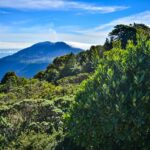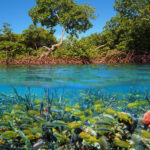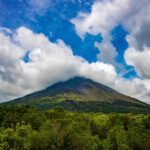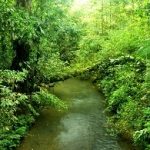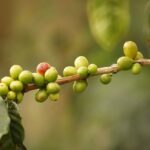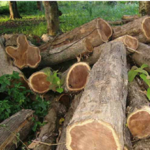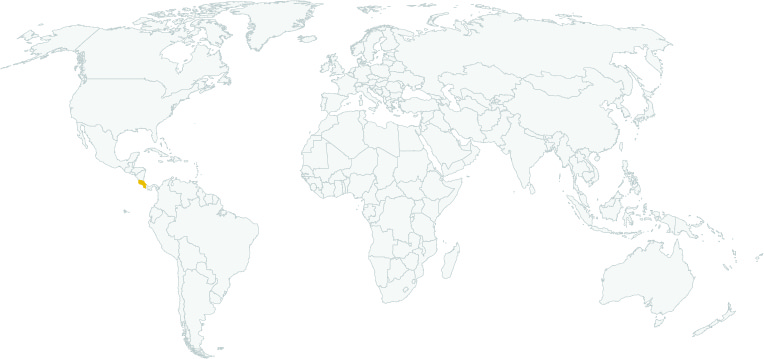
Costa Rica becomes the first national government to publicly endorse the Principles for Responsible Timber Construction.
Costa Rica’s new timber policy was explicitly shaped by the Principles, demonstrating how they can guide national regulation, climate strategy, and forest-based innovation. These new policy tools will embed sustainability, legality, and climate metrics directly into Costa Rica’s building codes – showing how the Principles are already influencing industry practice and government policy.
The Santa Cruz Environmental Prosecutor’s Office has seized files on the Bahía Papagayo concession from the Costa Rican Tourism Institute (ICT) and the Municipality of Carrillo.
Prosecutors opened the case after an on-site inspection to assess possible environmental damage to protected land, following multiple complaints from environmental groups and activists on social media. Bahía Papagayo, however, cites rulings from SETENA and SINAC stating that the land does not inlcude wetlands or mangroves and is not part of the State’s Natural Heritage. The controversy has also ignited a free speech debate. Bahía Papagayo requested the preventive seizure of assets and bank accounts belonging to content creator Juan Bautista Alfaro, known as Juamba Caminando, after he questioned the project’s environmental permits in a video.
The Central American country is advancing with the creation of a National Forest Traceability System, a key tool to guarantee the legality and sustainability of timber use.
As it stands, Costa Rica exports more than US$370 million worth of forest and wood products every year, with over 75% of the trade routed to Central American neighbours (including more than US$100 million to Guatemala, US$43.3 million to Nicaragua, and US$42.8 million to Panama). Much of its trade to the United States and Europe is in teak, used in yacht decking and flooring, where Costa Rica—a low-risk country under the European Union’s new country classification system—is filling the shortfall of Burmese teak from global markets.
Costa Rica’s Constitutional Chamber ordered the suspension of all concessions and permits in the Gandoca-Manzanillo National Wildlife Refuge, a protected area in Costa Rica’s Southern Caribbean. The Court also suspended previously granted permits, aiming to prevent serious and irreparable environmental damage to the refuge’s maritime-terrestrial zone—a coastal area safeguarded under environmental laws.
The ruling stems from a legal battle involving Pacheco Dent, whose company, Playa Manzanillo S.A., owns two properties between Playa Grande and Punta Uva. Initially, Pacheco Dent sought permission from the Amistad-Caribe Conservation Area (ACLA-C) to cut 94 trees for a road as part of an urban development project. After this request was denied, a private forestry regent he hired submitted a new application to cut 29 trees in an area classified as “wooded pastures” and 50 more under a certificate of origin, claiming the land held a forest plantation rather than native forest.
Illegal logging, poaching, and land grabs are on the rise, and the current slap-on-the-wrist fines aren’t scaring off the culprits.
It’s not just rogue loggers or poachers sneaking turtle eggs off Playa Ostional, but larger crimes associated with corruption (altered land-use plans, shrinking wildlife refuges, or state lands handed over to developers), and narco groups tying their trafficking networks to environmental crime (wildlife smuggling alongside cocaine, or airstrips carved out of state lands for drug runs).
FSC and Assurance Services International (ASI) announce the launch of the Teak Corridor transaction verification (TV) loop. FSC and ASI have conducted TV loops on FSC-certified high-value timber species like teak (Tectona grandis) in the past. The previous teak TV loop, along with other available information, indicate the possibility of integrity risks in the segregation of FSC-certified and non-certified teak in the supply chains.
Therefore, FSC recommends certificate holders with teak in their certification scope to apply additional due diligence in selecting their teak suppliers and following FSC rules to ensure that the teak products they purchase are legitimate and within the FSC certificate scope of the seller.
The National System of Conservation Areas (SINAC) processed 7,240 complaints related to environmental crimes between March 2023 and March 2024. These are complaints that are handled through the Integrated Environmental Complaint Processing and Response System (SITADA), where citizens can enter their environmental complaint.
Costa Rica proudly announced its first shipment of deforestation-free coffee to Trieste, Italy. The deforestation-free harvest was achieved through a pilot initiative led by UNDP, Costa Rican Coffee Institute (ICAFE) and CoopeTarrazú, the largest coffee cooperative in the country.
While this article is a basic summary of recent reports on the trade of Myanmar teak and sanctions, it also lists a few countries where some FSC-certified or “ethical teak” can be found (Indonesia, Vietnam, Laos, Costa Rica, Brazil, Columbia)
Click here to access the Global Illegal Logging and Associated Trade (ILAT) Risk assessment tool and to download the Forest Trends User Guide describing the functionality of the ILAT Risk Data Tool.
Click here to access the Cattle Data Tool.

